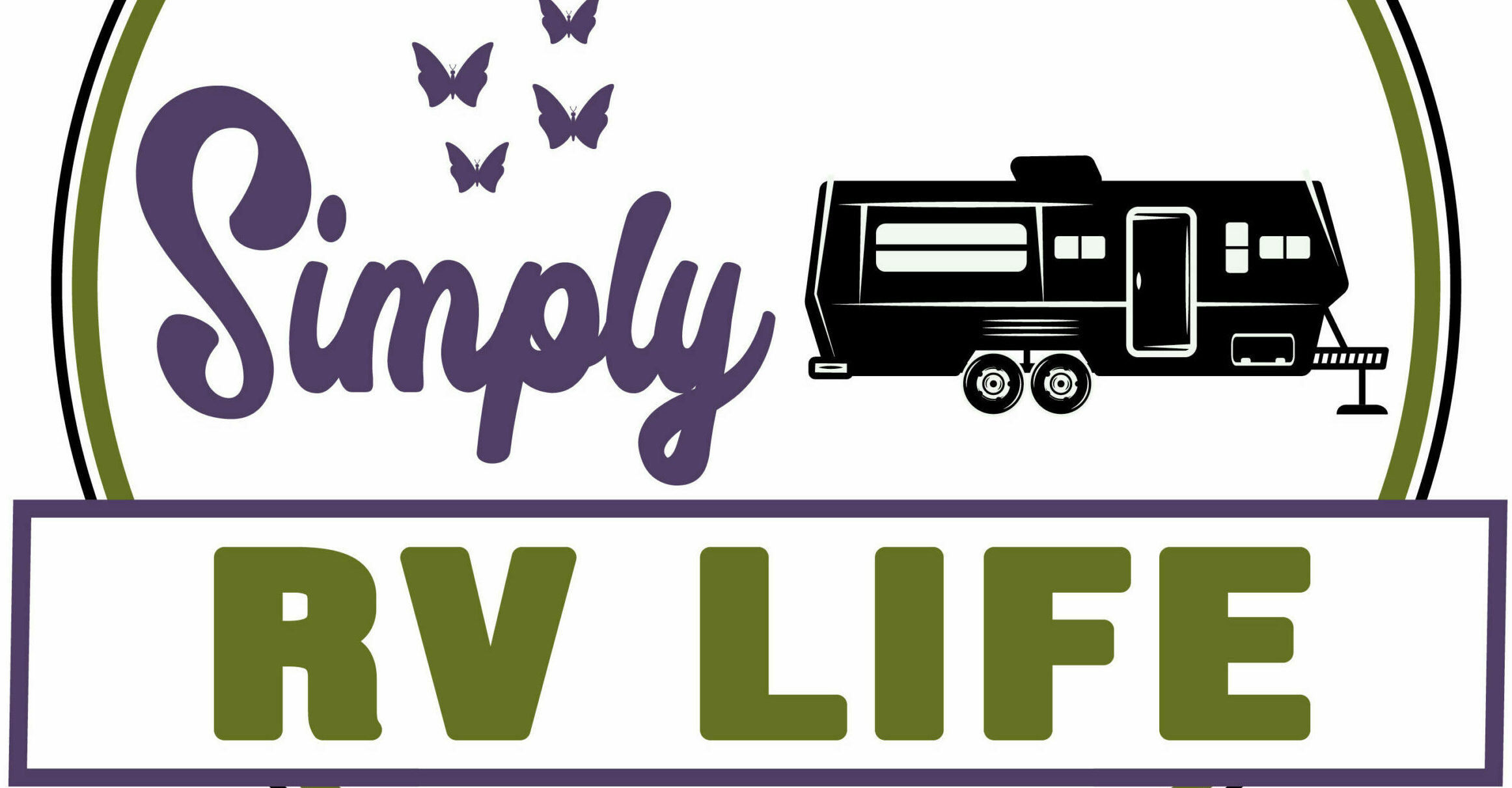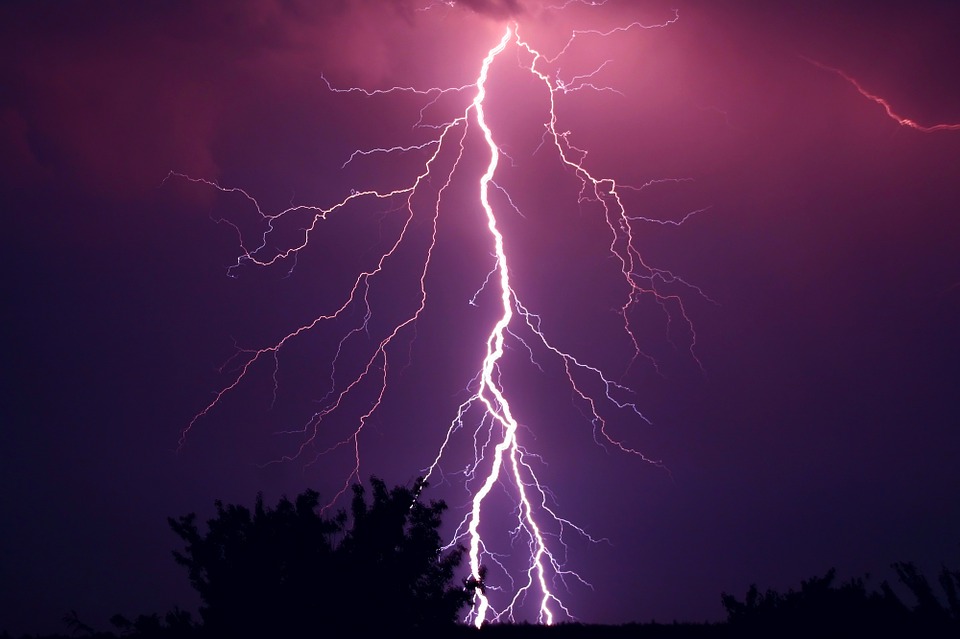
I Love Thunderstorms
We love to camp and quite honestly, I love thunderstorms. Maybe I should rephrase that, I love thunderstorms when I’m at home and not camping. If you and your family are at the campgrounds, it’s always good to know what the weather is expected to be. We find that camping on a sunny day is much more fun for us adults but kids love it when the rains hit. As soon as the rains pass, you can usually see the kids leave their campsites looking for the next big puddle to jump in. There is nothing wrong with a kid being a kid because most of us did the same thing back in the day when we were young. As I just noted though, it’s very important to know what the weather will be during the duration of your trip. Be prepared for any possible thunderstorms, especially severe weather which could produce high winds or tornadoes. Severe weather can wreak havoc on a campground and you’ll need to be ready to move to a solid structure in the event of high winds or possible tornadic activity.
Weather Radio (S.A.M.E.)
Before you take your family on any camping trips, please make sure you have a weather radio inside your RV. We actually recommend that you have a portable radio just in case you need to leave your campsite and take cover due to having severe weather in the immediate area. Regardless of whether you have a portable weather radio that uses batteries and electric or a stand alone that sits on your counter, it’s extremely important to have one.
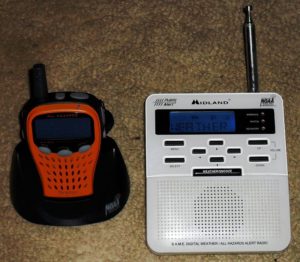
The best weather radio to have will use the S.A.M.E. technology. What is S.A.M.E. technology you ask? Great question!!! S.A.M.E. or SAME stands for Specific Area Message Encoding. It’s used in the United States and Canada and allows the National Weather Service and the EAS (Emergency Alert System) to send specific warnings and messages to certain areas (counties). Once the radio that’s equipped with the SAME technology, it decodes it and activates the warning tone. If the recieving radio has a digital screen, it will also illuminate the type of warning or emergency.
A weather radio won’t do alot of good though if you don’t know which county you are camping in. If you’re camping close to your home, odds are you will know the county to listen for on the weather radio, but if you are at a campground that you’re not familiar with due to the distance away from your home, you will want to make sure you know what county you’re in. Once you know which county your camp is set up at, you’ll need to program your SAME weather radio so it will give you local specific warning or emergency information.
For specific state and county SAME codes visit: NOAA State and Counties
For more information on the SAME technology visit: NOAA
Rain
When you think of severe weather at the campgrounds, it’s easy to think about how dangerous lightning and high winds are but did you realize that the rain falling from the sky could actually be more dangerous. Many campgrounds around the country are located in low lying areas or are near lakes or streams. A heavy downfall of rain could result in a flash flood thus resulting in serious dangers for anyone in the area. Children love water and may not realize the implications of walking through high water. It’s easy to think that high water is not a danger but many people drown every year due to flash flooding. If you are in a low lying area, you may be better off trying to get to higher ground if a flash flood is possible. Never drive through high water either as it only takes 18-24″ of water to move a vehicle. This goes without saying but it takes much, much less water to create issues for a human being walking in it.
Lightning
Does lightning strike twice in the same place? Of course it does but let’s not stick around to find out if it strikes the first time. Of course we know that rain is a serious danger during severe thunderstorms but lightning is something that can sneak up on you. Often times we’ll be at the campgrounds and see people outside mingling and kids playing as a thunderstorm approaches. It’s important to know that if you hear thunder in an approaching storm, lightning can strike where you are. To stay safe, it’s highly recommended that you find shelter once you hear thunder and stay there until the storm has passed and the thunder hasn’t been heard for 30 minutes.
One misconseption is that lighting must hit you to kill you but that is dead wrong. If lightning hits close to you it could possibly travel to you and go through your body which could result in serious injury or death. NEVER take shelter under a tree because if that particular tree gets hit by lightning, the energy will also strike you and could resu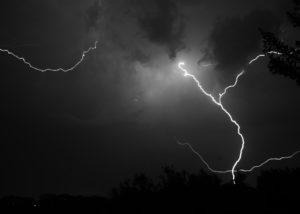 lt in death. A solid shelter is best and a car or RV is sufficent as long as high winds don’t accompany the storm. Never lay flat on the ground while trying to avoid lightning. It’s best to crouch low to the ground but make sure it’s in a safe area and not under a tree.
lt in death. A solid shelter is best and a car or RV is sufficent as long as high winds don’t accompany the storm. Never lay flat on the ground while trying to avoid lightning. It’s best to crouch low to the ground but make sure it’s in a safe area and not under a tree.
It’s easy to underestimate the dangers of lightning because you normally don’t hear of mass casualties associated with lightning but it does kill 1 or 2 at a time. That in itself is to many but your chances of survival are much better if you take cover in a secure building or car.
High Winds
Camping in a high wind event can be somewhat scary as tree limbs could fall or debris could fly through the air. It would take a substantial windstorm to blow over your rig but there are things you can do to help keep your camper upright.
- It’s also recommended to bring in your slides during a wind storm as this will bring the center of gravity back to the middle of your unit. This also minimizes the area the wind could hit and push over your rig. For those of you with slide toppers, this will also prevent damage to your topper.
- If you have a travel trailer or fifth wheel, you could hook your unit up to the truck as this adds several thousand pounds.
- Secure your outside belongings to keep them from flying around which could cause serious damage to your rig or a neighbors. Be sure to take down any flags that may be elevated in the air.
- Pull in your awnings. It doesnt take much wind to damage or destroy an extended awning.
- Keep your windows and vents closed.
- If possible, you could move the RV so it points in the same direction of the wind. This will prevent your rig from rocking back and forth.
The good news is that it’s highly unlikely your rig will blow over unless the winds reach in excess of 100mph. The same cannot be said about driving down the road in high winds. If you’re driving and cross winds hit 25mph or more, you will be challenged to keep your trailer on the road.
Tornados
There is not an RV or tent (did I really say tent and tornado in the same sentence) that is safe when it comes to a tornado. This is why it’s very important to know where the safe areas of the campgrounds are prior to a storm or tornado hitting your local 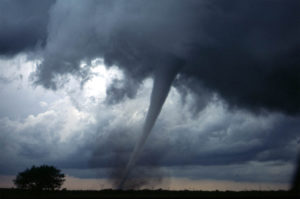 area. If you think there is a possiblity of severe weather during your camping trip, it’s best to ask an employee of the park where their safe areas are. It will most likely be in a restroom but it’s still worth finding out for sure.
area. If you think there is a possiblity of severe weather during your camping trip, it’s best to ask an employee of the park where their safe areas are. It will most likely be in a restroom but it’s still worth finding out for sure.
If you know of a tornado heading toward your camping site, it’s imperrative to take action immediately. If you have no where to go, get to the lowest ground possible and ride out the storm. Just make sure the low spot you are at isn’t filling up with water.
For maximum safety, get to a solid structure preferably made of concrete and bricks. Under no circumstances should you ever stay in an RV or tent if a tornado is about to hit your area. Tornados and campgrounds full of campers do not mix. If worse comes to worse and you have time, jump in your vehicle and get to a safe place away.
Tornados can happen anywhere at anytime of the year, but the south and midwest usually see the most in March, April and May while the northern United States see the most tornados in the middle of the summer. As noted, they can strike at any time, even in the middle of winter.
Stay Safe
We hope that the information provided will help keep you and your family safe. We encourage you not to let rain or even thunderstorms deter you from enjoying the campgrounds. If you stay aware of the changing weather conditions, you have a much better chance of staying safe. Happy Camping!!!
If you would like more information on Severe Weather preparedness or have any other question or comment, please reach out to us at simplyrvlife@gmail.com
Thank you,
Jason, Amy and Haley
